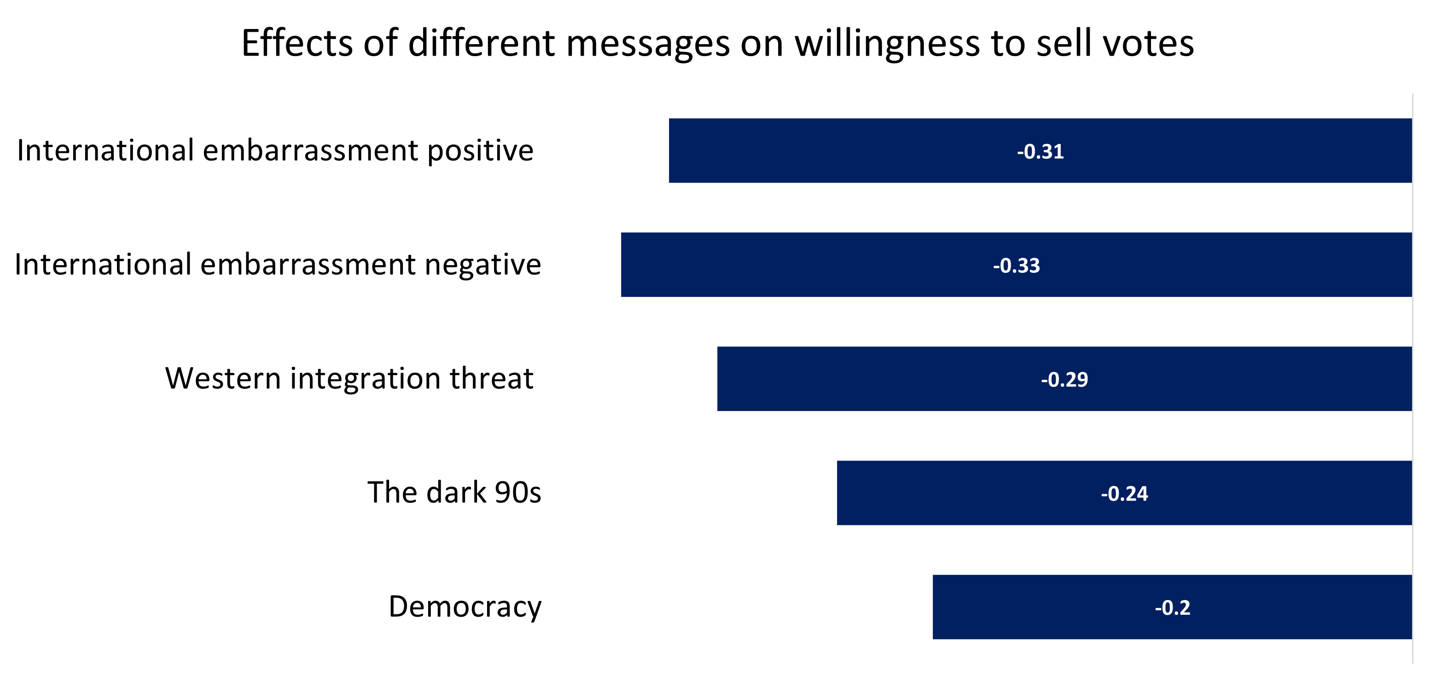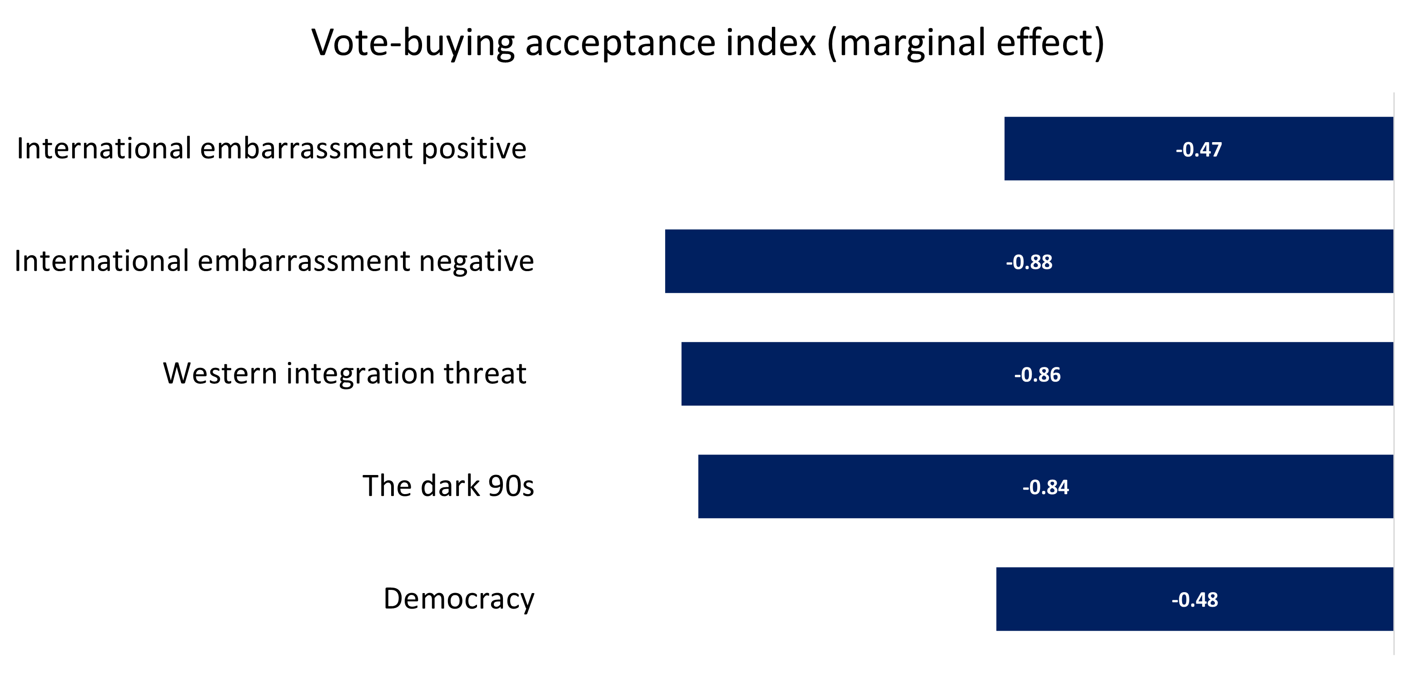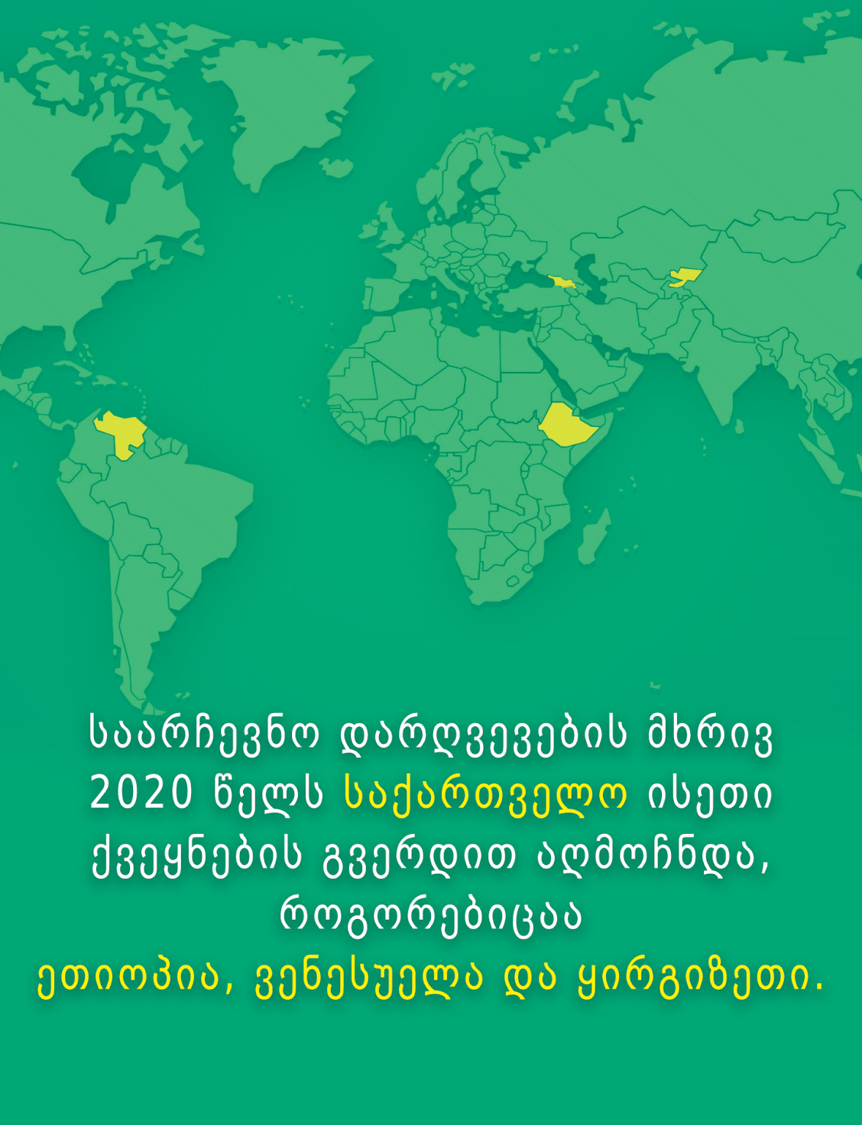
According to research carried out by CRRC Georgia, 20% of Tbilisi’s population appears to be willing to sell their vote. However, this research also discovered that the popularisation of certain messages may also discourage vote-buying among the population.
Recent elections in Georgia have featured widespread allegations of electoral fraud. Indeed, the OSCE’s ODIHR, the main election watchdog internationally, said that ‘contestants were able to campaign freely in a competitive environment that was, however, marred by wide-spread and consistent allegations of intimidation, vote-buying, pressure on candidates and voters, and an unlevel playing field.”
Knowing this type of problem could arise, given that past elections had featured similar allegations, CRRC Georgia attempted to measure and discourage vote-buying in the 2021 municipal elections. To do so, the organisation:
- Conducted a pre-electoral experiment testing what messages might discourage vote-buying in Tbilisi prior to the elections;
- Delivered the most effective message identified in the pre-electoral experiment on posters to 18,000 households, prior to the elections as part of a randomized control trial and;
- Measured how effective the messages were at discouraging vote-buying.
The results point in a positive direction, but are less than conclusive, requiring further research in future elections.
Measuring vote-buying
Imagine that a stranger came to your home or called you on the phone, and asked you if you use illegal drugs. It is easy to imagine that few people would give an honest response.
To estimate the prevalence of illicit activities, researchers use a method called a list experiment. In list experiments, respondents are shown a list of different activities and asked how many they intend on doing or have done in the past. Half of the respondents are shown a list without a sensitive item and half are shown the same list plus the sensitive activity. By asking respondents how many activities they have engaged in, respondents do not have to tell the interviewer that they have engaged in an illicit activity.
Researchers can then estimate how many people have engaged in an illicit activity by comparing the average number of activities that the people in the short list group reported versus the number of activities reported by the long list group.
Willingness to sell a vote
In the lead up to the elections, approximately 3000 Tbilisi residents participated in a survey with the above-described type of experiment. The results suggest that approximately 20% of Tbilisi’s population was willing to sell their vote prior to the election, defined as voting, ‘for a certain candidate in exchange for a gift or money’.
While measuring vote buying can have important implications, discouraging it is arguably better. Indeed, ideally, there would be no vote-buying. In support of this goal, the pre-electoral survey also contained a randomised messaging experiment testing which of five different messages might discourage people from selling their vote most effectively.
The first message attempted to induce embarrassment about Georgia’s declining electoral integrity by comparing the country to positive examples internationally. The second message worked on the same premise, but placed Georgia alongside other countries doing poorly internationally. The third message highlighted the threat that vote-buying presents to Georgia’s western integration prospects. The fourth message reminded the public of the much-maligned ‘dark’ 1990s, which included widespread electoral fraud. The fifth message highlighted the incompatibility of vote-buying with democratic norms.
The results suggest that the most effective message was the negative international embarrassment message. However, the other messages were also effective, with the exception of the message on democracy. The chart below shows the marginal effect of each message on people’s intentions to sell their votes right after hearing the messages.

Aside from discouraging people from selling their votes, the above messages also changed people’s responses to a set of six questions on attitudes towards vote-buying. The chart below shows the magnitude of the change on a scale varying from 0 to 18 points, with 0 meaning no acceptance of vote-buying and 18 meaning full acceptance of vote-buying. Again, the most effective message on this scale was the message that aimed to embarrass respondents about Georgia’s declining electoral quality, placing it in the ranks of countries that have recently had issues with electoral integrity.

Did the messages work in the real world?
Based on the above results, CRRC conducted a cluster randomized control trial in Tbilisi to test the efficacy of the negative international embarrassment message in the real world. To do so, the organisation designed the poster below, printed 18,000 copies, and delivered these to households that would be interviewed following elections.

After the first round of elections, over 1,200 interviews were conducted with households that did and did not get a copy of the above poster.
Analyzing these interviews points in a positive direction for the posters, but is far from conclusive. The results point in the direction of vote-buying taking place, and also towards a decline in vote-buying as a result of the posters. However, the results are not definitive, failing to meet standards for statistical significance.
With regard to attitudes, the data indicates some minimal impacts on a few of the survey questions about attitudes towards vote-buying. However, there is no evidence that the poster uniformly shifted attitudes towards less tolerance of vote-buying on the attitude index depicted above.
What does all of this mean?
The results of the experiment CRRC Georgia conducted are promising, but also definitively inconclusive. They point towards the existence of vote-buying, and they point towards the anti-vote-buying message being effective, but they do not demonstrate this beyond a shadow of a reasonable doubt.
This conclusion calls for future research. Notably, the pre-electoral survey found statistically and substantively significant effects. However, this survey measured results immediately after respondents heard the message. In contrast, the posters were placed on people’s doorsteps in the weeks leading up to the elections. It is plausible that the effect of the message dissipated over time. In this regard, future research should consider attempts to deliver the message in multiple mediums, multiple times.
The data from the pre-electoral survey also clearly shows that multiple messages were effective, even though the negative international embarrassment message was most effective. In this regard, future research should test out whether delivery of multiple messages and combinations of the above, as well as different messages, is effective at sustaining anti-vote buying attitudes.
Above all, one would hope that this research would be unnecessary in the first place. That it was even conducted points towards a need for the authorities to ensure that vote-buying does not take place.
This article was written by Dustin Gilbreath, Deputy Research Director at CRRC Georgia, and Givi Silagadze, a Researcher at CRRC Georgia. The views presented in this article are the views of the authors’ alone and do not represent the views of the National Endowment for Democracy, CRRC Georgia, or any related entity.








